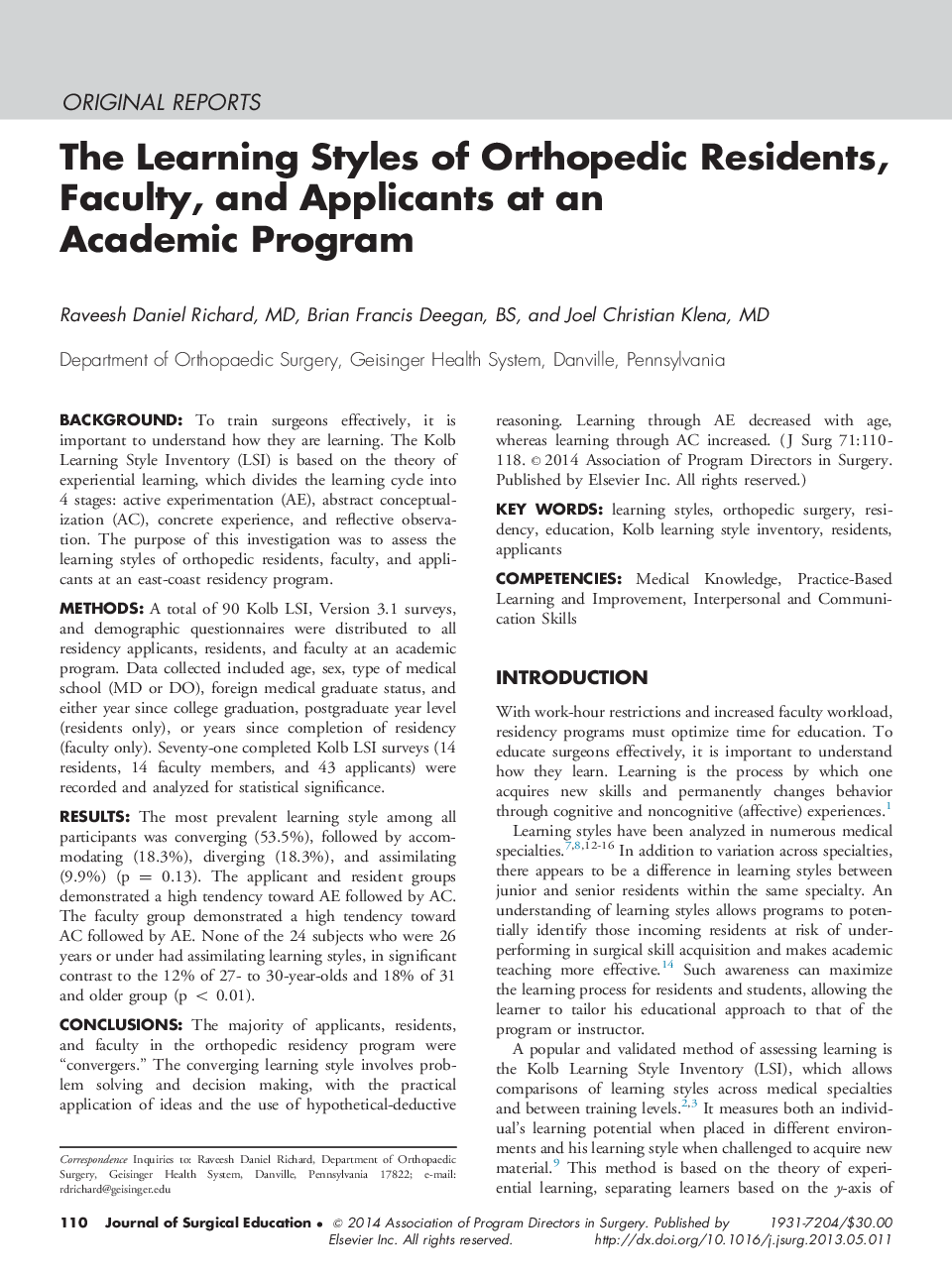| کد مقاله | کد نشریه | سال انتشار | مقاله انگلیسی | نسخه تمام متن |
|---|---|---|---|---|
| 4297643 | 1288326 | 2014 | 9 صفحه PDF | دانلود رایگان |
BackgroundTo train surgeons effectively, it is important to understand how they are learning. The Kolb Learning Style Inventory (LSI) is based on the theory of experiential learning, which divides the learning cycle into 4 stages: active experimentation (AE), abstract conceptualization (AC), concrete experience, and reflective observation. The purpose of this investigation was to assess the learning styles of orthopedic residents, faculty, and applicants at an east-coast residency program.MethodsA total of 90 Kolb LSI, Version 3.1 surveys, and demographic questionnaires were distributed to all residency applicants, residents, and faculty at an academic program. Data collected included age, sex, type of medical school (MD or DO), foreign medical graduate status, and either year since college graduation, postgraduate year level (residents only), or years since completion of residency (faculty only). Seventy-one completed Kolb LSI surveys (14 residents, 14 faculty members, and 43 applicants) were recorded and analyzed for statistical significance.ResultsThe most prevalent learning style among all participants was converging (53.5%), followed by accommodating (18.3%), diverging (18.3%), and assimilating (9.9%) (p = 0.13). The applicant and resident groups demonstrated a high tendency toward AE followed by AC. The faculty group demonstrated a high tendency toward AC followed by AE. None of the 24 subjects who were 26 years or under had assimilating learning styles, in significant contrast to the 12% of 27- to 30-year-olds and 18% of 31 and older group (p < 0.01).ConclusionsThe majority of applicants, residents, and faculty in the orthopedic residency program were “convergers.” The converging learning style involves problem solving and decision making, with the practical application of ideas and the use of hypothetical-deductive reasoning. Learning through AE decreased with age, whereas learning through AC increased.
Journal: Journal of Surgical Education - Volume 71, Issue 1, January–February 2014, Pages 110–118
